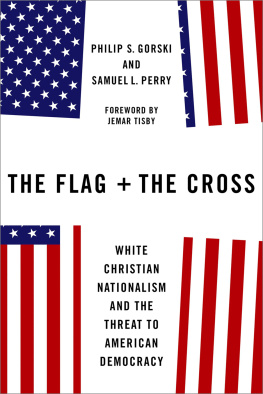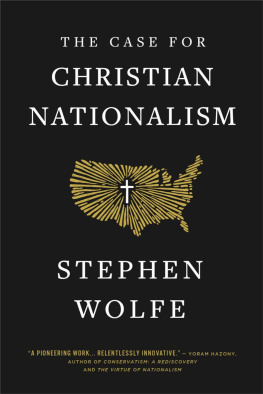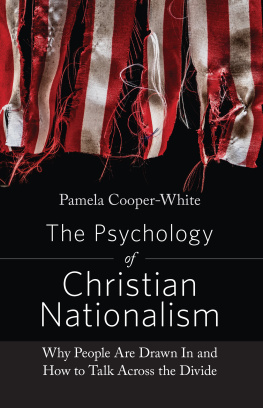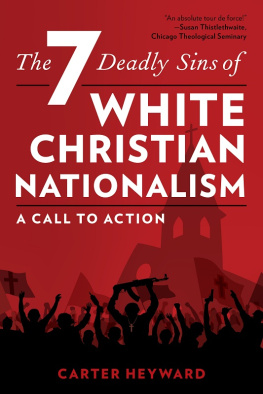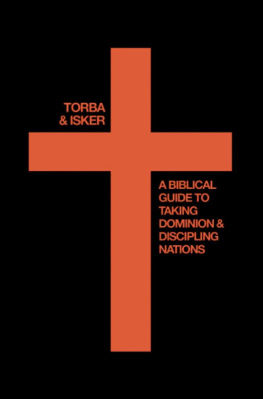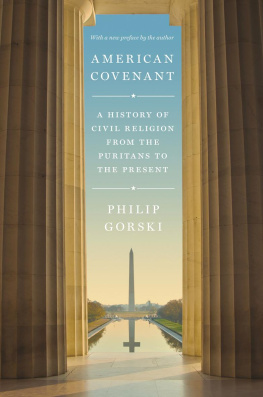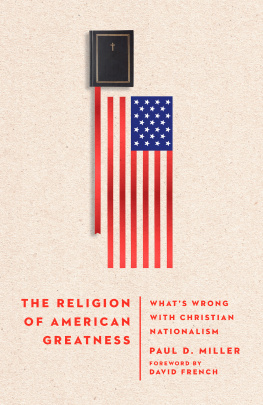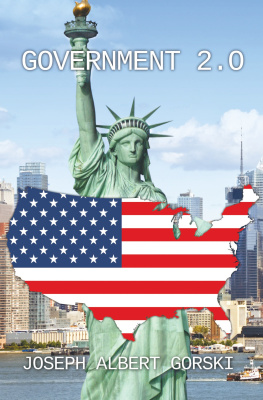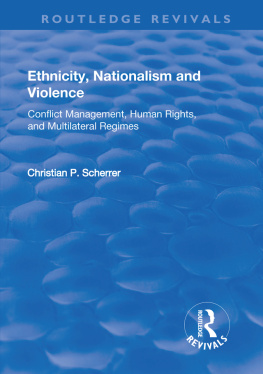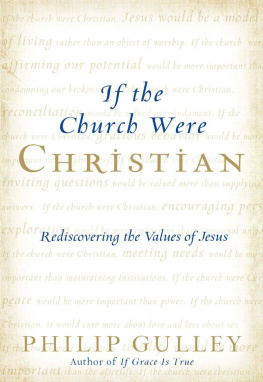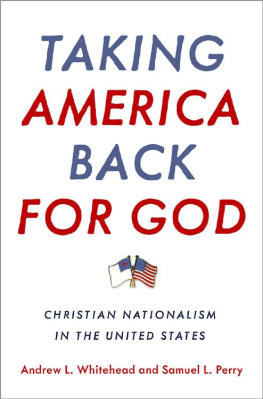THE FLAG AND THE CROSS

Oxford University Press is a department of the University of Oxford. It furthers the Universitys objective of excellence in research, scholarship, and education by publishing worldwide. Oxford is a registered trade mark of Oxford University Press in the UK and certain other countries.
Published in the United States of America by Oxford University Press
198 Madison Avenue, New York, NY 10016, United States of America.
Oxford University Press 2022
All rights reserved. No part of this publication may be reproduced, stored in a retrieval system, or transmitted, in any form or by any means, without the prior permission in writing of Oxford University Press, or as expressly permitted by law, by license, or under terms agreed with the appropriate reproduction rights organization. Inquiries concerning reproduction outside the scope of the above should be sent to the Rights Department, Oxford University Press, at the address above.
You must not circulate this work in any other form and you must impose this same condition on any acquirer.
Library of Congress Control Number: 2021923315
ISBN 9780197618684
eISBN 9780197618707
DOI: 10.1093/oso/9780197618684.001.0001
Contents
I thought I had endured the worst racism that Christians could spew at me. Then came November 2016.
In a bracing turn of events, a minority of voters elected Donald J. Trump as the 45th president of the United States. To add to the head-spinning element of the moment, exit polls showed that white evangelical Christians who voted had pulled the lever for Trump at a rate of about 81 percent.
I remember staying up late on election night as the results rolled in. I sat alone, my wife having long since gone to bed with the resolution that seeing the results live on television would not change the outcome. It was dark and I was toggling my eyes between the television screen and the Twitter feed on my phone. When it was clear that Trump had won, it became nearly impossible for me to grab and hold onto a single thought as my mind and emotions struggled to keep up with this new development.
Finally, a feeling of dread settled over me as I reckoned with the fact that a blatant opponent of racial justice would soon occupy the highest political office in our nation. Then my thoughts focused on matters closer to home: my church. I attended a congregation that was predominantly white and evangelical. By the percentages and from my own interactions with them, I knew that many of my fellow churchgoers had voted for Trump. I couldnt shake the pain I felt. I had made no secret about my concerns about this man, particularly his long record of trafficking in racial stereotypes and coddling racists.
How could I go to church that Sunday with people who so clearly misunderstood and perhaps even dismissed my reality as a Black person in America? How could I sing, pray, and exchange pleasantries with folks who seemed not to care what their favored politicians plans would mean for me, my family, our community, and our country? I knew I wouldnt be able to fake it, and I didnt want to try.
None of what I was feeling was unique to me. From my work with Black Christians all over the country, I knew that many others had similar misgivings about their faith communities leading up to and in the wake of the presidential election. While they may have shared their concerns privately with trusted friends and family members, I went and turned on the mic to record a podcast.
My friend Beau interviewed me about my reactions to the election and I spoke honestly. I said, I dont feel safe worshiping at my predominantly white evangelical church this Sunday. I went on to describe the sense of betrayal I felt from white evangelicals as a whole, but how I still valued individual white Christians for their commitments to racial justice. I sensed my words would sound jarring to some, so I spoke with as much nuance as I could muster.
It didnt help.
Not long after we released the podcast episode, my mentions on social media turned into a dumpster fire of racist jabs and diatribes.
One meme depicted a cartoonish young Black man shaking hands with a chimpanzee while the caption called me a woke n***a. Another called me a wokevangelical. On a follow-up blog post I wrote, someone else commented that I was merely engaging in moral posturing and had succumbed to the ethically paralyzing and emotionalized position of racial solidarity and sympathy. A fellow church memberone with whom I had never had an in-depth conversationcommented on Twitter that my views on Christianity, Trump, and the election were liberal and worldly. In the aftermath, several think pieces appeared that criticized me, and the denomination and religious communities of which I was a part quickly became sites of marginalization and ostracism.
For three weeks, I could not go online without the little muscle under my left eye twitching. The stress had caused a physiological response in which I essentially winced every time I opened my laptop. I became conditioned to expect the worst; and when I thought the rhetoric couldnt spiral any lower, it always did. I later learned that what I experienced is a form of racial trauma, and several years later I am still processing its effects through therapy, prayer, and reflection.
I think part of why the criticism affected me so deeply was that I couldnt name exactly the forces that were acting against me. I didnt have a category to explain the toxic combination of racism, religion, and politics that had taken over my life.
Thats where learning about white Christian nationalism and the work of Philip Gorski, Samuel Perry, and other scholars researching the subject helped so much. The concept of white Christian nationalism encompasses the many ways bigotry, prejudice, xenophobia, patriarchy, and racism show up in Christian guise. More than merely providing a nomenclature for a sociocultural phenomenon, white Christian nationalism helps explain the mindsets and beliefs that lead to certain behaviors that seem so contradictory.
How could self-described born-again Christians who placed so much emphasis on morality champion a philandering, arrogant, and cruel politician like Donald Trump? How did wearing a mask during a viral pandemic become an issue of religious freedom? Why did so many Christians who quote Romans 13 about being subject to the governing authorities support an attempted insurrection at the Capitol building? Do racism and white supremacy form the subtext of all their beliefs?
The answers to these questions are historical, contextual, and complex. But The Flag and the Cross offers a glimpse into a system that has an internal, if frustrating, logic of its own. Gorski and Perry give clear and deeply researched examinations of critical ideas such as Christian libertarianism as well as idiosyncratic notions of order, freedom, and the use of violence. The authors go further. They show how white Christian nationalism is not simply a set of beliefs, but a narrativea deep story that keeps getting told, re-told, and embellished to suit the desires of those who buy into it.
The Flag and the Cross leaves us with a dire but necessary warning. While it would be comforting to think of the insurrection at the Capitol as an isolated event that wont be repeated in the near future, the data that Gorski and Perry compiled lead in a different direction. They conclude that not only is another violent power grab possible, but A second eruption would likely be larger and more violent than the first. Large enough to bury American democracy for at least a generation. And maybe longer.

